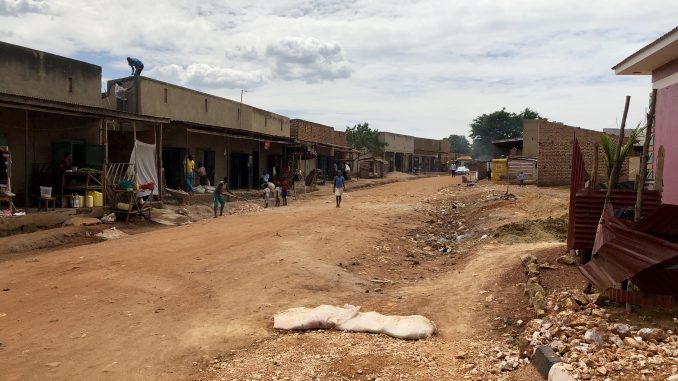
Over the last few weeks, I have been working with Disability Art Project Uganda (DAPU), a community-based organization (CBO) based in Bugadde, rural Uganda. DAPU was recently put in the spotlight by ENVenture for financing clean energy products (lighting and cooking) and water filters to provide clean water to poor communities in rural Uganda. Since I started working with DAPU, I have done initial market research to figure out the state of affairs of rural and suburban customers. What follows summarizes my findings to date:
Distribution and Logistics
Distribution and logistics networks are fragmented, thus organizations need to locate their distribution points centrally and ensure that customer demand is aggregated. The distribution locations should be conspicuous enough for customers to easily notice and visit to make their purchases. It’s also important that the locations should be easily accessible by public transport (buses and motorcycles) in-order-to reduce inventory transport costs. For DAPU, an effort is already being put into identifying suitable locations in Bugadde that meet the above criteria.
Frequency of Income
Income streams of rural and suburban customers are sporadic and unpredictable. This means that for organizations to sell their products to the customers in these areas, they need to carefully map earning patterns for each consumer segment. Although this is a challenge, it is possible to understand when each consumer receives income. For example, a sugar farmer in Bugadde will sell sugarcane around December and will be liquid during this period. On the other hand, a milk vendor in Jinja will have enough income to purchase products at the weekends throughout the year.
Income levels
In addition to sporadic incomes, average daily income is low (between USD 0.81 and USD 2.70) for the people I interviewed. This presents a challenge for organizations serving these low-income segments because their ability to pay is low; even with financing, the chances of default are still high. Organizations serving such customers should identify specific customer product fit through a credit assessment by in-person interviews, referees, and by designing a manageable payment plan for the customer. There is no guarantee of repayment because a small “shock” such as a health emergency could hinder future repayments by customers. However, creating customer trust and reminders would be a good way to reduce repayment defaults. Accurate and realistic pricing mechanisms should also be put in place to encourage repayments. At DAPU, we will implement these techniques in this first quarter of 2019 and will continue to refine the methods over time.
Availability of Information
Most rural customers still use dirty and expensive energy sources such as kerosene lamps for lighting and inefficient cooking stoves for cooking. During our interviews, most respondents claimed they were not aware of cheaper, cleaner energy alternatives. From this, it would be safe to recommend that organizations that provide clean energy services to rural consumers should adopt marketing strategies that provide high product visibility and clearly defines value to end consumers. For most rural consumers, the value is created through economic benefits (savings) and physiological benefits (healthier alternatives). DAPU hopes to provide value to its customers and attract them to use DAPU products and services.
On top of the four major findings highlighted above, I should note that the consumer population is dispersed over a wide geographical area. Reaching every consumer is a tremendous challenge. I highly recommend that organizations should work with last-mile entrepreneurs to boost their visibility and sales volumes in order to scale. The business that I believe can succeed in this type of rural market would be one with high volumes and low margins.
This article is a first of a series of articles I will share about my 5-months experience in Bugadde, supporting DAPU and another CBO to refine their business model and scale up their operations. I hope you enjoyed the read. If you have other resources about Uganda rural consumers, feel free to share with me.
